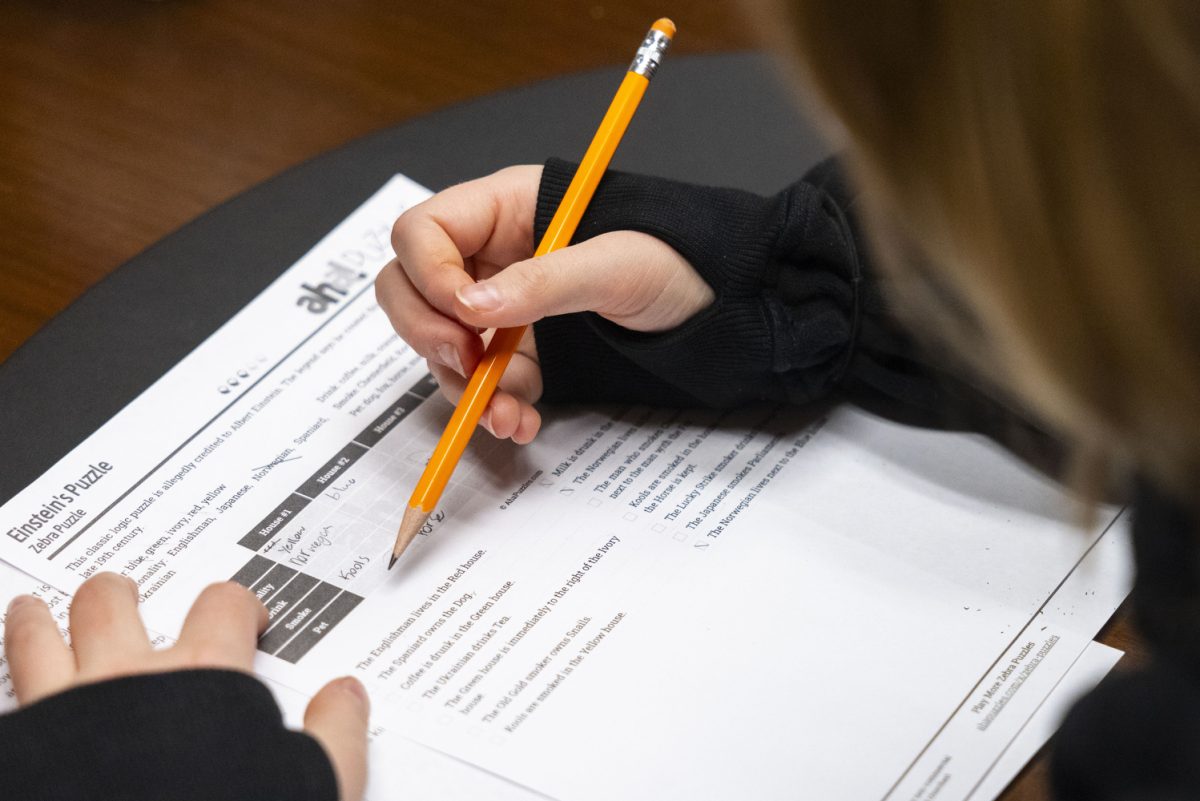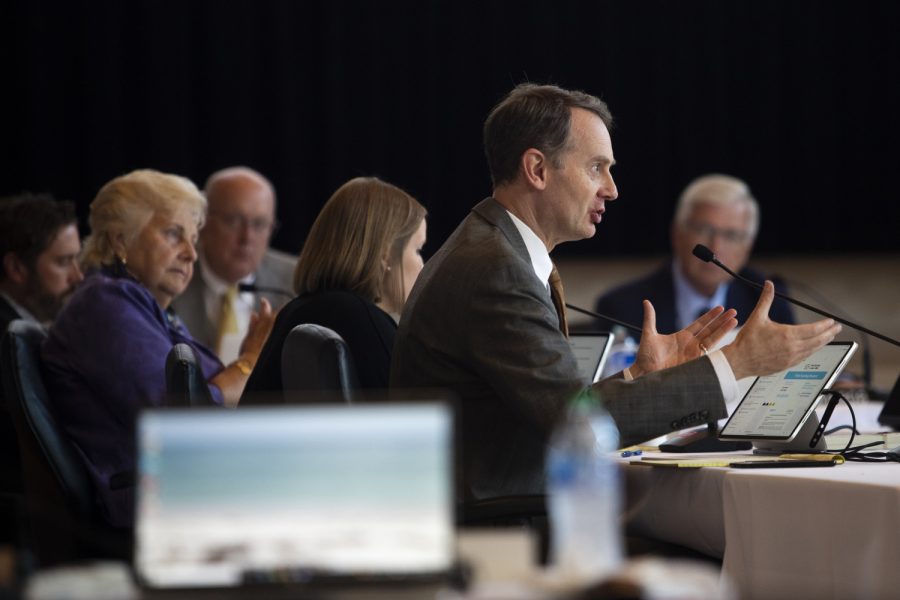Just as University of Iowa Housing and Dining looks to decrease it’s own carbon footprint, the UI has invited Food Sustainability Expert Frances Moore Lappé on campus.
Lappé, author of Diet for a Small Planet, will talk about how she believes shifting to localized food production is the way to improve the global climate and eradicate hunger.
And Liz Christiansen, director of the UI office of sustainability, said the UI residence hall dining officials are already working toward such ecologically minded practices.
"[UI Dining is already] trying to source more and more foods locally," she said. "… They offer vegetarian and vegan options at every meal."
During an interview with The Daily Iowan, Lappé said a simple shift of habits could have a strong impact on ending hunger.
"The reason that we’re not ending hunger is because we start with the wrong way of identifying the problem," Lappé, founder of The Small Planet Institute, said. "… We’ve hit 7 billion on the planet—I make the case that shifting to localized production is part of the solution to climate change."
To fight hunger at the local level, Christiansen said when residence halls overproduce food. The excess food is donated to Table to Table, which redistributes it to organizations serving the needy.
The UI will also install a "pulper" — which would allow the UI to use less water when disposing of food waste —at Hillcrest this spring as part of a $20,000 grant the UI received from the Solid Waste Alternatives Program in 2010.
According to the grant application, the device will reduce the UI’s water usage at Hillcrest Market Place by 1.5 million gallons per year.
The "pulper" could also save the UI up to $17,554 annually for water treatment.
Lappé emphasized the importance of smart ecological practices.
"A shift in agriculture is a huge part in the solution to climate change," she said. "Every act we take is a vote for the world we want or the world we don’t want."
Lappé said she began her work in sustainability by letting herself ask questions.
"I was 25 going on 26 and I started asking ‘why was there hunger in the world?’ I wanted to know if famine was inevitable. I let one question lead to the next question. I was stunned to know that we have enough food, but too much hunger," she said. "It’s that disconnect that has kept me going all these years."
The Center for Global and Regional Environmental Research is sponsoring Lappé’s appearance, along with the UI Office of Sustainability, the UI Lecture Committee, the Public Policy Center, and the School of Urban and Regional Planning.
And Jerald Schnoor, UI professor and co-director of CGRER, said the center is funding projects about the broad scope of sustainability.
"I think there’s a race going on between our ability to produce enough food on planet earth to be able to feed a growing population," Shnoor said. "Hopefully our food production keeps pace."
And Lappé said the namesake of her Small Planet Institute pays tribute, both to her first book written in 1971, as well as her hopes of eradicating hunger in the future.
"We’re building on this journey because it suggests that we’re all in it together," she said. "There’s not that much distance between us."






